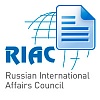Publications Review 23.10.2014. Indian strategy in the Asia-Pacific, reforms in Morocco, Polish nuclear energy sector, Chinese think-tanks, Human trafficking
In
Login if you are already registered
(no votes) |
(0 votes) |
In this digest of international publications you will find a variety of topics: changing Indian strategy in the Asia-Pacific and the future of the US-Indian partnership, constitutional reforms in Morocco, development of Polish nuclear energy sector, new face of Chinese think-tanks, EU’s commitments in providing development assistance for the third world countries, Afghan political system after elections and a publication on human trafficking and online networks.
This publication will guide you through changing India’s identity and strategy in the Asia-Pacific region. Published by Rising Powers Initiative under the auspices of Joint US-Korea Academic Studies, this is a comprehensive piece focusing not only on India in this vast region, but other prominent countries involved in the intricate mechanisms of multilateral frameworks. Delhi is building and shaping its strategy according to national interests but also taking into account various geopolitical shifts in the Asia-Pacific.
Moving on to a slightly narrower topic, here you will be able to explore the depth of US-Indian strategic partnership. In the view of Prime-minister’s Narendra Modi political and economic agenda, this partnership may turn out to be a game changer in the regional power balance. Once subscribed, you will be able to download the full text of the article.
 Arab Reform Initiative is an ambitious project launched in 2005. Featuring various publications and policy briefs on democratic changes and developments in the Arab countries, this platform gives insight into many pressuring issues of the region. One of the most recent pieces dwells upon constitutional reforms in Morocco and how they change political landscape of the country. If successful, these amendments are likely to modify national political regime.
Arab Reform Initiative is an ambitious project launched in 2005. Featuring various publications and policy briefs on democratic changes and developments in the Arab countries, this platform gives insight into many pressuring issues of the region. One of the most recent pieces dwells upon constitutional reforms in Morocco and how they change political landscape of the country. If successful, these amendments are likely to modify national political regime.
Polish PISM features a very detailed analytical report on nuclear energy in Poland. This topic becomes even more acute given all the problems the region and Poland in particular experience being heavily dependent on Russian energy supplies. Is nuclear energy even feasible in Poland? The report answers this question in various dimensions: economic, technological, societal and political.
EU is one of the most diligent development advocates in the world. FRIDE in Barcelona alongside with Egmont gives an eight-page long policy brief on relations in the field of development between EU and its partners with developing countries. Authors review the scope of the provided aide and what should be done in the future. The main targets are: Nepal, Mozambique and Brazil.
Development Research Center of the State Council of the People’s Republic of China has issued an article which dwells upon the topic of creating new think tanks in China under new conditions. How will new Chinese national governance look like? Will think tanks play a bigger role in the decision making process?
German Green Political Foundation Heinrich Böll focuses on The Centrality of Power and Elite Structures to Afghanistan’s Electoral Failings in a recent article published online this October. The national political system is marred with fraud and corruption; the people cannot exercise their right to free vote. The fault lies within national power abusive elite. Find out more.
In July 2014 Centre for policy studies within Central European University issued an extensive policy brief on human trafficking and online networks. This is a somber, one of the most horrifying illegal activities in the history of all times. With all the existing legal frameworks, control mechanisms and enhanced cooperation between countries human trafficking thrives and poses grave danger for underdeveloped regions. With the rise of Internet age it has become even more so.
Digest Editor: Maria Gurova, RIAC Program Assistant
(no votes) |
(0 votes) |











